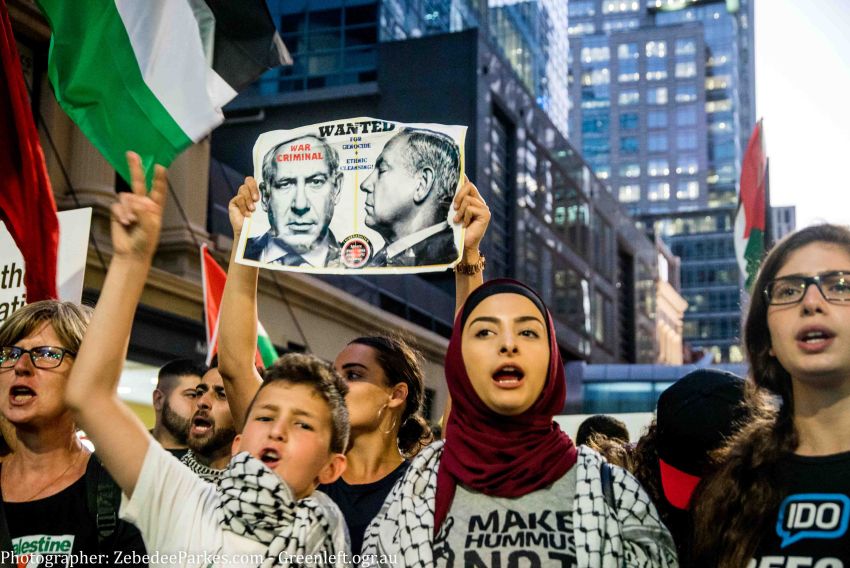
The Annual Congress of the Trade Union Congress (TUC) representing nearly 6 million members in Britain adopted a motion on September 15, which reaffirmed its solidarity with the struggle of the Palestinian people for the right to self-determination, condemning the occupation and expansionist policies of the Israeli government.
The resolution expressed outright opposition to the annexationist ambitions of the Benjamin Netanyahu government, backed by the United States Administration and called for an end to British government complicity.
Demanding a cessation of the blockade of Gaza and support for “the right of Palestinian refugees to return”, it committed the TUC to “communicate its position to all other national trade union centres in the International and European Trade Union Confederations, and urge them to join the international campaign to stop annexation and end apartheid”.
What is distinct about the resolution is that, in calling for an end to “apartheid”, it identifies the Israeli state’s practices towards the Palestinian people as institutionally discriminatory, thereby challenging the normalisation of relations currently adopted, for example, by the United Arab Emirates and Bahrain and promoted by the White House.
Internationalism has a long tradition in the British trade union movement. In the 1860s, mill workers in the Manchester area refused to work with slave-labour-produced cotton imported from the southern states of the US, despite the hardships their families suffered as a consequence.
Volunteers, many from the trade union movement, fought in the Spanish Civil War against the fascists.
In the 1960s, trade unionists were amongst the first to respond to the African National Congress call for a boycott of South Africa.
It is this tradition that is echoed in the solidarity being expressed for the Palestinian people.
When acted on, the TUC decision could make a significant contribution to the building of the international solidarity movement and encouraging unions worldwide to play a major role in the campaign as they did in the campaign against Apartheid in South Africa.
The TUC commitment was the product of work by supporters of the Palestine Solidarity Campaign and trade unionists over many decades.
Trade unions were recognised as important because of their potential to win millions of people to the campaign for justice for the Palestinians. Additionally, the unions are significant because some are affiliated to the Labour Party and they can therefore make a vital contribution to ensuring that the voice of the Palestinians and their supporters is not silenced by pro-Netanyahu apologists within the party itself.
Over more than three decades, this work has resulted in a change from Palestine being the concern of a small minority into a cause with overwhelming support in the unions. Whilst breakthroughs took place in a small number of unions in the early 1990s, the support of the majority of unions was cemented by the adoption of a motion in 2006, which set the political agenda for subsequent years.
The motion, moved by the Fire Brigades Union expressed support for:
• the right of the Palestinian people to self-determination;
• the right of Palestinian refugees to return to their homeland;
• the withdrawal of Israeli troops from all occupied territories; and
• the removal of the illegally constructed “apartheid wall”.
From the outset, the TUC encouraged all its trade unions to affiliate to the Palestine Solidarity Campaign (PSC), and, since that date, there have been innumerable meetings of union branches which have heard Palestinian speakers and returning British delegations discussing the situation of the Palestinian people.
Hundreds, if not thousands, of trade unionists have visited historic Palestine, meeting workers, communities and campaigners to make themselves better informed on the issues resulting from the brutal actions of the Israeli state and its military. These trips have included meeting with a wide range of Palestinian activists and visiting many refugee camps, cultural centres, schools, universities, those facing house demolitions, child prisoners, members of Bedouin communities and Palestinian activists inside Israel.
This weighty cohort bringing their own first-hand knowledge of the situation have become effective advocates for the Palestinian cause and mobilisers for actions initiated by PSC. Whenever possible, they have sought to develop this political solidarity into practical actions of human support.
The trade unions have been centrally involved in campaigning against all forms of racism including against Islamophobia and supporting the mobilisations around Black Lives Matter. At the same time, those who support the Palestinians understand that there is no contradiction between militant opposition to anti-semitism whilst maintaining a position of intransigent support for the rights of the oppressed Palestinians.
The challenge now is to continue to develop this work, to call on the Labour Party to endorse this campaign and to demand that British governments end their complicity with the Israeli government’s oppression of the Palestinian people and reject the intervention by President Donald Trump or any future US administration to thwart the right of the Palestinian people to self-determination.
[Reprinted from Mondoweiss.]